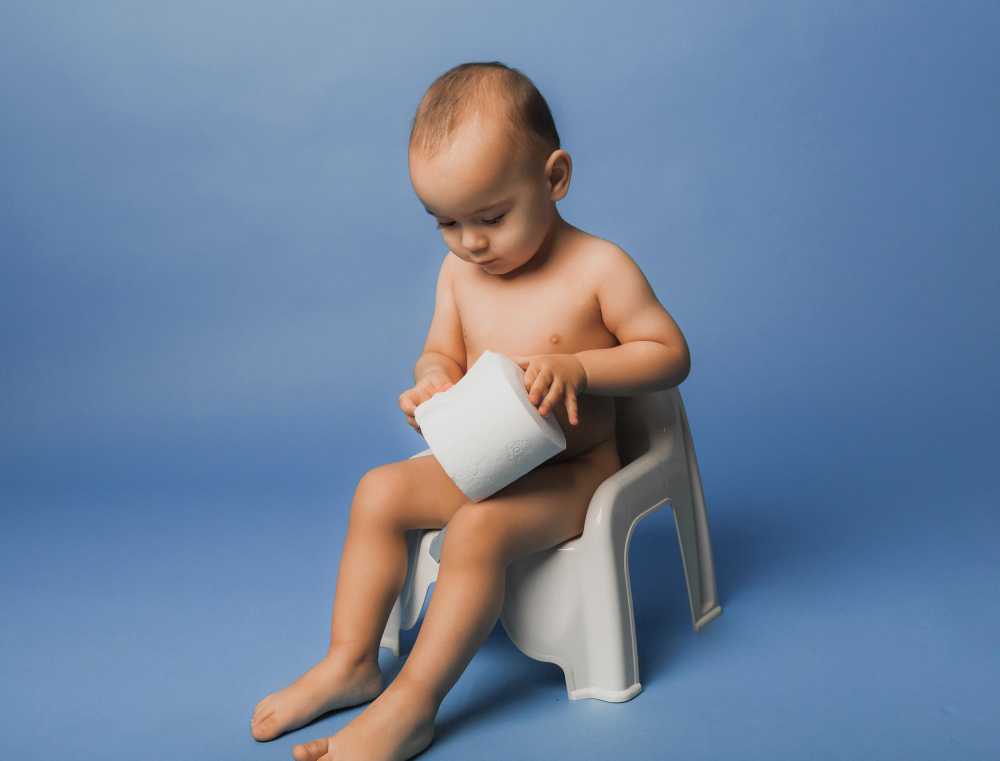Once you have a child, you effectively agree to be liable for their poop for 3 to 4 years. Diaper changes in public restroom new-born blowouts, the dreaded “poops explosions” whenever you’re late, and, of all, potty training
The point is, there’s a lot more crap involved in raising a tiny human than anyone tells you.
A common problem for potty-training kids is learning to urinate in the potty but being reluctant to poop there. Rather than viewing it as an issue, it is preferable to view it as a regular aspect of toilet training.
Before beginning potty training, a child must master several essential skills, including the ability to sense such a need to poop and then hold it until they reach the toilet; the ability to vocalize the need to go to the restroom to an adult; and the ability to undress and redress in attempt to use the bathroom. If your kid is not yet ready, it is advisable to wait until they are.
Most kids learn to use the toilet between the ages of 18 months and three years. But keep in mind that three years isn’t a magical age when everybody is potty trained. There are a number of things you could do to help your child. Create a routine
Make it a habit for your youngster to use the toilet each day at about the same time. For example, choose a time of day when they usually have been pooping in their diapers to have them sit on the toilet.
When food enters the stomach, it sends signals to the colon that cause you to want to poop. As a result, having your youngster use the restroom shortly after breakfast each day is often a brilliant idea, as the system is prepared for pooping at that time.
-
Reduce stress
Other factors contributing to toilet training difficulties include the latest changes at home or childcare, a sudden illness, or other pressures. A recent move, for example, or a new infant in the house can frequently cause toilet training issues. If this is happening to your child, be patient while adjusting to life changes.
-
Prevent Constipation
If your kid has bowel motions that are occasionally large, difficult, and unpleasant to pass, they may be frightened to use the potty to relieve themselves. Potty training issues are frequently caused by constipation.
Make sure your youngster is getting enough fiber and drinking plenty of water. If you have any worries about your child’s constipation, seek assistance from your pediatrician.
-
Give a footrest
Ensure that the child can put their feet on something while going to the bathroom to poop, as it is difficult for them to poop when their feet are not on the floor or a stair of some kind. This is why kids will frequently squat in the distance to defecate in a diaper, as squatting is a highly effective position for removing excrement from the body.
If constipation isn’t a concern and there haven’t been any modifications at home, the following suggestions may assist your child in conducting normal stool movements on the potty.
- Allow them to have bowel movements in a pull-up, but empty the excrement into the potty to teach your child where it goes. After that, you can inform kids that “poop goes in the potty.”
- Encourage children to urinate in the restroom, even if it means using their pull-ups. When they’re acclimated to it, let them sit on the potty in a pull-up when they need to go. They might eventually be ready to remove it.
- When your kid develops progress, whether it’s dumping their pull-up in the potty or just being in the restroom while they poop in a pull-up, offer them lots of praise. But never scold or penalize your child if they do not poop in the manner or location that you prefer.
- To assist your child, get used to the idea of pooping in the potty, read potty training storybooks like The Princess and the Potty or Everyone Poops.
Continue to use a pull-up if your kid is resistive to all of these tactics. Tell them they can inform you when they’re ready to begin going to the bathroom or using the potty.


